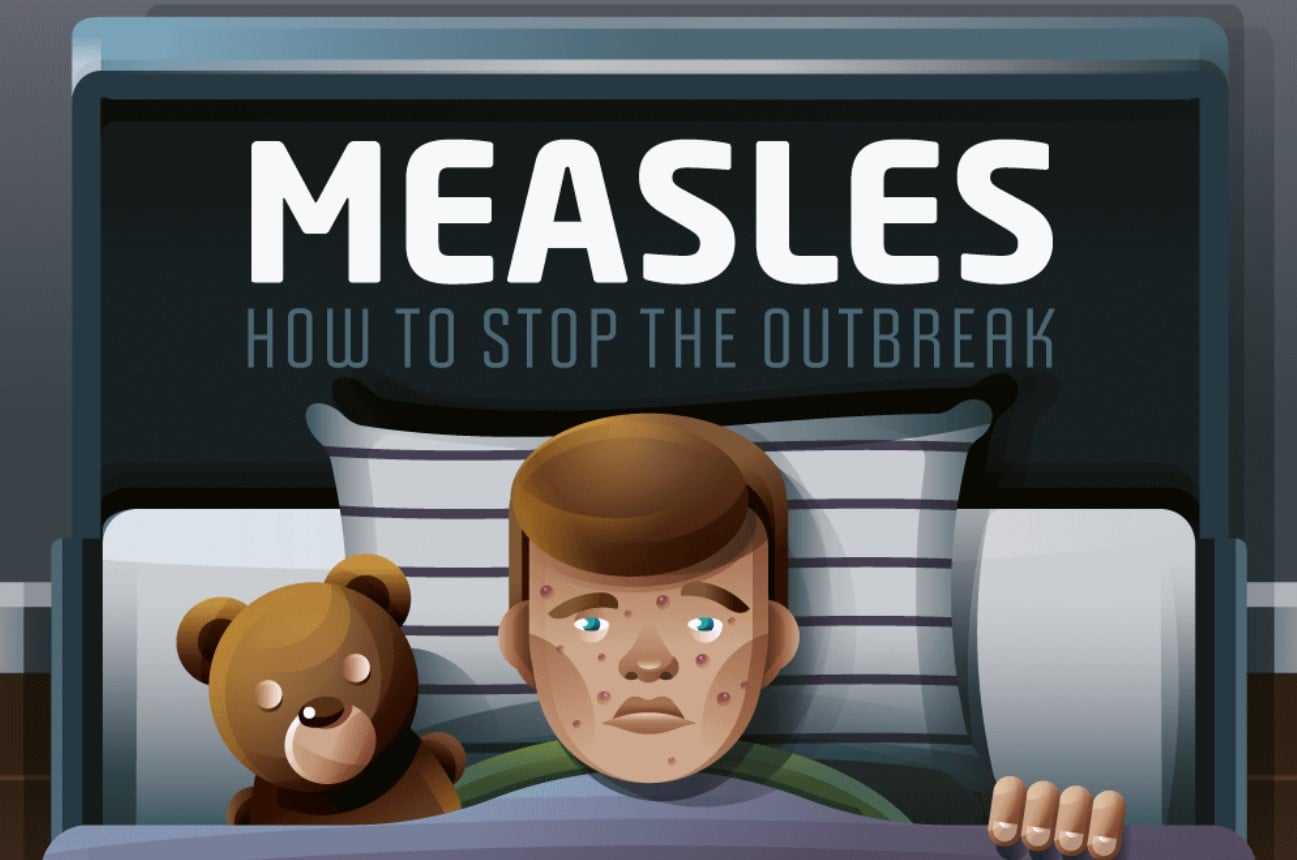Measles is making a comeback, and resources that should be spent fighting other health problems are being diverted to fight an outbreak of a totally vaccine-preventable disease. Misinformation has been spreading over the last two decades about the dangers of the MMR vaccine, and social media has amplified the misinformation campaigns. There are two fronts in the war on measles: one involves getting people who may not know they need a booster shot up to date, and the other involves dispelling misinformation and fighting back against vaccine hesitancy.
In the first four months of 2019 alone, there were nearly 800 cases of measles nationwide. Outbreaks are happening in 23 states, with the epicenter being New York State. Measles was first identified in Boston in 1657, and it wasn’t until 1963 that the first vaccines for the disease were developed. Today schoolchildren are required to receive two doses of the MMR vaccine in almost all cases, with few exceptions on the grounds of religious beliefs. The only legitimate exception in most cases is if the recipient is unable to receive the vaccine because they are allergic to some component of it.
Q1 hedge fund letters, conference, scoops etc
Unfortunately in states where religious or personal belief exemptions exist, pockets of unvaccinated people have grown thanks to misinformation or no information about the safety and efficacy of the vaccines. Just this month, 318 Scientologists were quarantined on a cruise ship in Curacao after one of the crew members was diagnosed with measles — only 41 had been vaccinated previously.
The World Health Organization declared vaccine hesitancy one of the largest threats to global health today. Fighting back against vaccine hesitancy is going to take a lot of work, and already companies like Facebook, Pinterest, Amazon, and YouTube have taken steps to prevent inaccurate and misleading information and hoaxes from being given the same weight as proven, accurate information.
On top of people who don’t want vaccines, there are also people who may falsely believe they are protected from measles thanks to weak vaccines or not enough vaccines. People who received early versions of the measles vaccine may not be fully immune, while people born before 1989 may have only received one dose. If you don’t know whether you are sufficiently immune, a blood test called a titer can determine whether you need an additional dose of the vaccine.
Learn more about stopping the measles outbreak before it becomes an epidemic from the infographic below.




